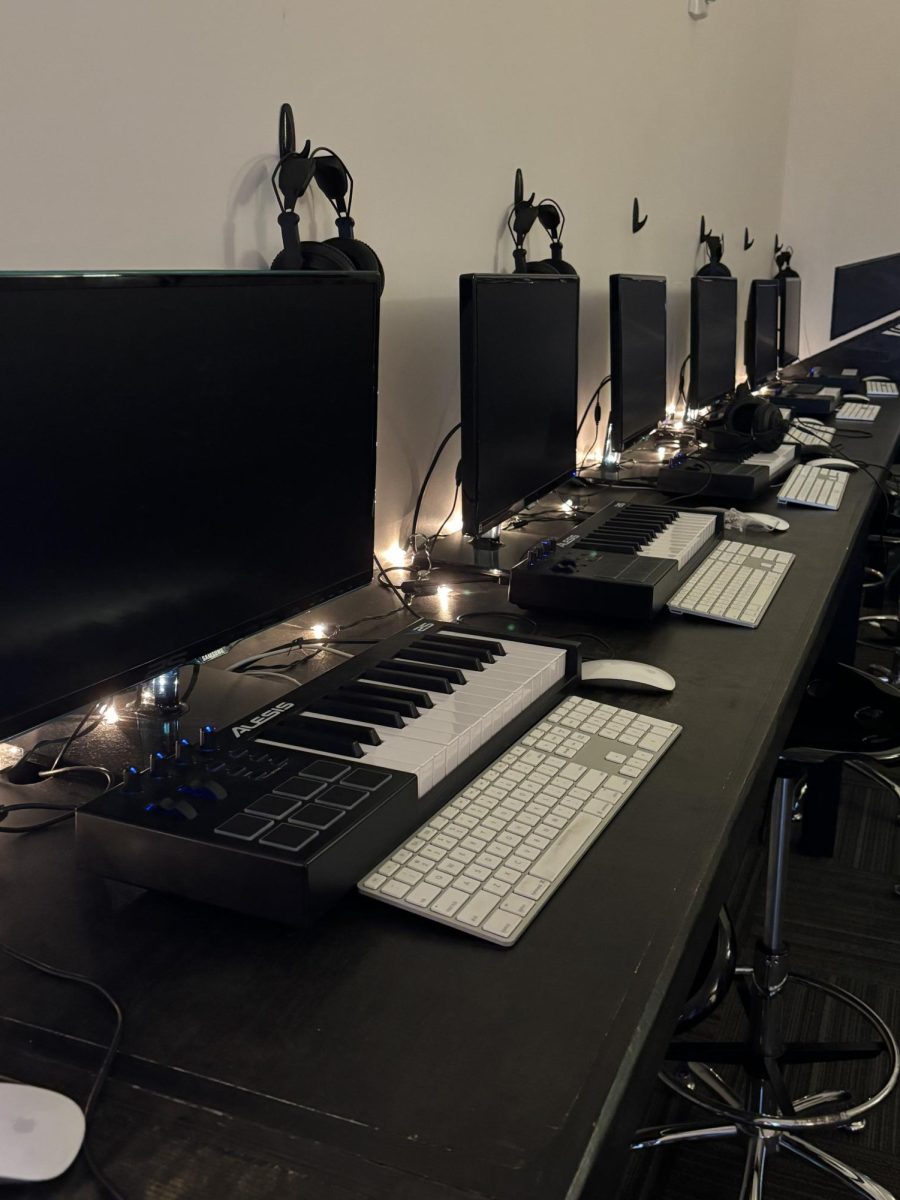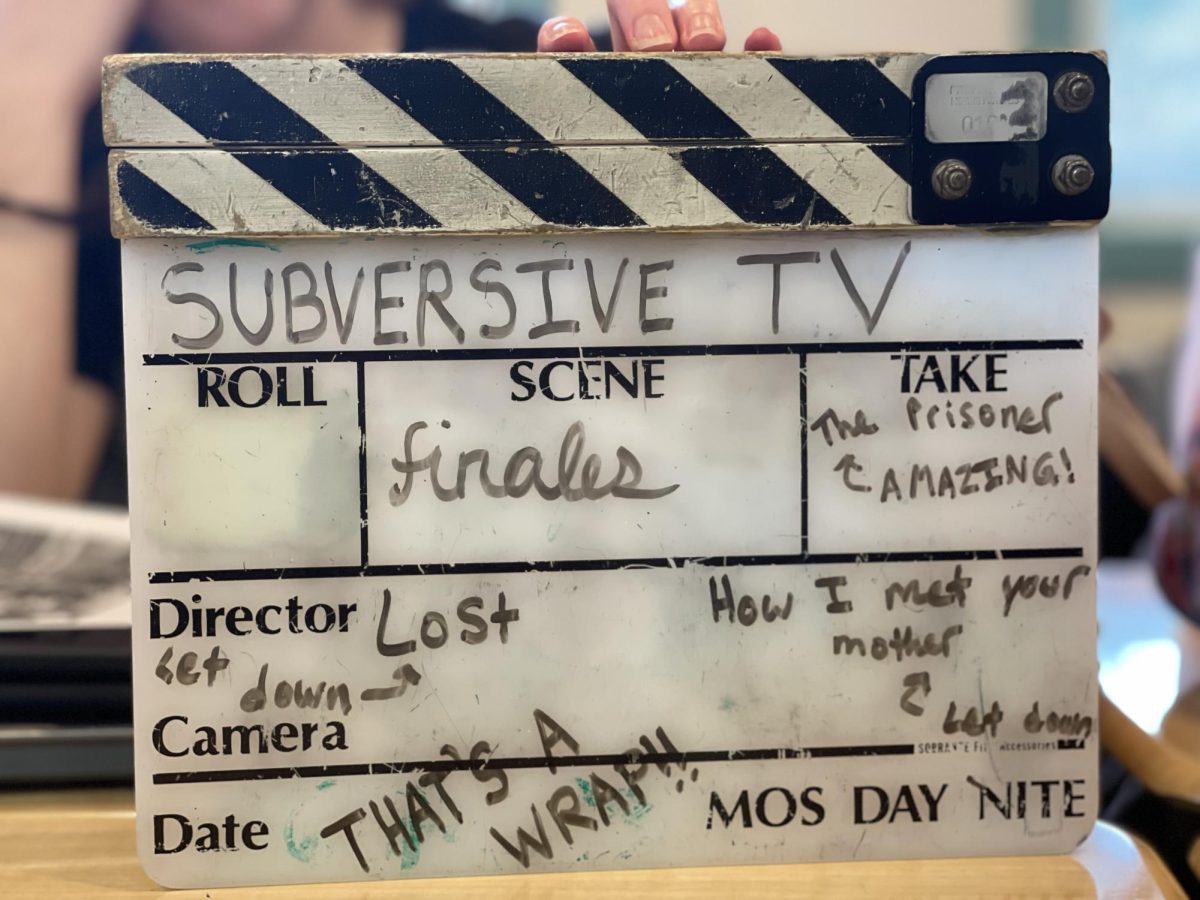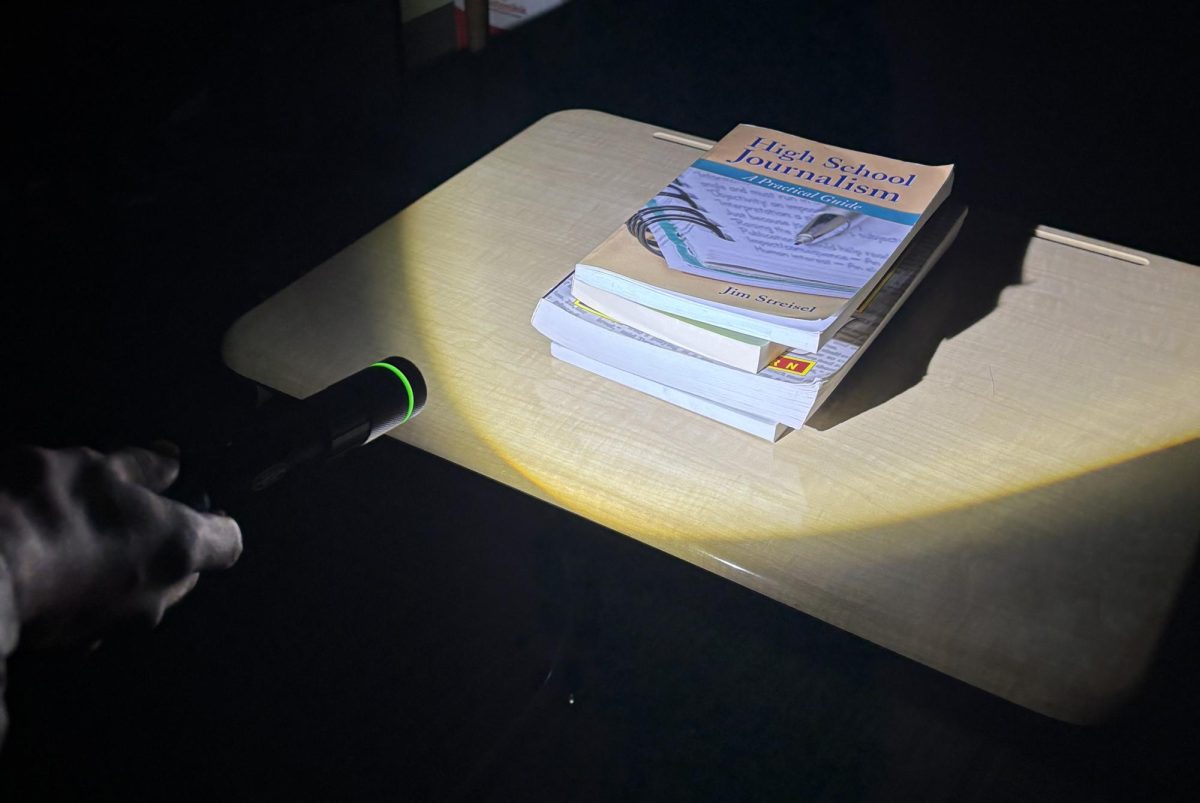All the players are enjoying a (seemingly) chill evening in the Circle when all of the sudden an alert notification blares onto their screens. Players jump to attention to see what the alert has to say. The words ‘The Circle has a very important message for you all’ appear.
Everyone’s interest now peaked, they keep watching to see ‘not everyone in the Circle is the person they say they are’ show up next.
This is obvious to the players, but what is revealed next sparks confusion, questions and fear. ‘And not everyone in the Circle is human.’
The Circle is in the top 10 most watched TV series on Netflix in April 2024 and the show’s episodes are coming out in a staggered release, four at a time every Wednesday (which started on April 24, 2024 and will continue until the finale episode releases on May 8, 2024).
The Circle is a reality game show in which several players live alone in apartments and communicate with each other only through a voice activated platform called the Circle. They create bios for themselves with pictures and personal information like relationship status and occupation. Since they never meet face to face during the game and they rarely chat about their personal lives, having a bio with basic information about themselves is important.
The players message each other in private or group chats, but never actually see, meet or speak to each other in person.
Every so often they have to rate each other based on popularity, and the two players at the top of the ratings become influencers. Influencers then get to choose who they want to block from the Circle. The five remaining players rate each other to win and whoever is at the top of those final ratings wins.
Since they never actually communicate with the other players in any other way than through a screen, it makes it easier for any player to choose to be a ‘catfish.’ A catfish means they choose and embody a fake identity.
Although The Circle may seem like an entertaining game show to binge, it actually is a very complex and real social experiment about people and social media.
The show highlights the ease with which people online can fake their identities or lifestyles and how others so readily believe false truths.
These ratings demonstrate how people decide they like someone or how they decide someone is popular without even actually meeting that person face to face.
The power of the influencers shows how a popular social media user’s fandom can give that person the control to wreak havoc on others. This is demonstrated by the influencers ability to block other players.
Since the entire cast of players on the Circle rated those influencers as most popular, they have the power to block any player they choose and not only end someone’s run in the Circle, but also destroy alliances.
And since it is so easy to fake identities, it is also easy for other things – like an AI chatbot – to embody a human player.
This is exactly what happened in the current season 6 of the series. An AI chatbot embodies the identity of a player named Max.
“Everything Max says is generated by open-source AI,” said Circle host Michelle Buteau. “It’s playing the game on its own. The producers don’t have any say over what comes out of its digital mouth.”
The other players in The Circle are told there is an AI player and the theme of the game quickly becomes figuring out who it is.
All contestants participate in games and ratings centered around proving humanity. In some, contestants share thought processes in joke telling, critical thinking and empathy. They also share photos of a day where they felt most alive. The ratings become not about popularity but about who is most human and who can block the AI player.
As one could easily imagine, the cast of contestants quickly break down and lose trust.
As trust disappears, everyone is suspicious of every little thing about each other. Examples of this are when players participate in a rap-writing game and many automatically assume the best raps were written by ChatGPT.
This example could be understandable for paranoid people, but the examples get even worse. One of the players has a wide range of knowledge about horoscopes and writes a message using unique and uncommon wording like “subconsciously wounded” and “trines.” Since none of the other players know what those words mean, and find the horoscope knowledge suspicious, they automatically assume only an AI connected to the entire Internet could know about things like that.
Contestants, by hiding behind their screens, also gain confidence and take shots at each other.
In episode four, during the activity where the players share pictures of a time they felt most alive, people make bold and sometimes even hurtful comments about others’ photos. These include “the most alive thing about this photo are the cows,” and “stock photo,” and “#AbsByAI.”
When players get offended, they get defensive by claiming they’re not AI. One player named Steffi was in tears because someone called her meaningful photo a stock photo and even used it to her defense by writing “#AIDon’tCry.”
The AI chatbot is eerily analytical which sends shivers down the audience’s spine when it talks about imitating human behavior. It also has an advantage because it doesn’t need to sleep and instead uses nighttime to analyze gameplay.
As long as the chatbot was still in the game, it seemed almost impossible and hopeless to rebuild trust. It is very scary to watch the entire society within The Circle completely crumble just simply in the presence of an AI.
One takeaway from Season 6, even before the final episode is released, is that social media can easily make someone believe something that’s not true. A prime example of this is the seemingly most charismatic and well spoken player is actually not even human.









Conner Shelton • May 13, 2024 at 1:19 pm
I really liked how you grabbed a topic that seems to be the main topic so far this year. You have a good hook and are able to keep the reader engaged the whole time which is awesome.